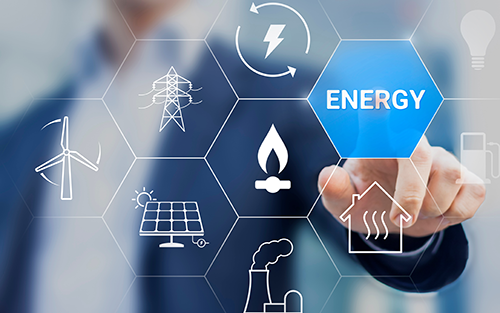- By Gaven Simon
- October 10, 2023
- ARC Advisory Group
- Feature
Summary
The “Global Energy Regulation Roundup” is dedicated to capturing and understanding emerging climate policies.

The “Global Energy Regulation Roundup” is dedicated to capturing and understanding emerging climate policies. Currently, international governments are increasingly establishing stricter policies on emissions, trade and energy. The purpose of this periodic report is to highlight approaching regulations and educate key stakeholders about their effects on a range of industries.
Across the globe, governments, agencies and local officials are drafting, enacting and signing stricter climate policies that will have a lasting impact across multiple industries. Regulations such as the European Commission’s Corporate Sustainability Due Diligence Directive (CSDDD) will take effect in 2024 and will affect over 50,000 businesses. These historical directives are becoming more abundant as governments begin to lay out a clear path to net zero which includes a complete green energy transition. The private sector will no longer have the option to voluntarily opt into reporting programs or climate pledges. The public sector is beginning to lay out reporting frameworks, timelines and are going to rely heavily on companies to become responsible for accounting of their emissions. Suppliers and end users will be affected but currently have the opportunity to be ahead of the implementation of stricter energy regulations.
Asia: April-July 2023
On May 19, the 79th session of the UN Economic and Social Commission for Asia and the Pacific (ESCAP) hosted in Bangkok concluded. The session’s theme focused on “accelerating climate action in Asia and the Pacific for sustainable development.” During this session leaders re-committed to immediately curb greenhouse gas emissions and agreed upon ten resolutions aimed at strengthening regional climate action. The resolutions include promoting clean energy technology, low emission mobility, early warning systems and sustainable urban development. The Asia Pacific region has the largest and fastest growing population and accounts for the largest share of global emissions.
Ping An Bank, a subsidiary of Ping an Insurance (Group), has announced a 180-million-yuan ($25 million) loan agreement to help fund a pilot carbon-capture project of Baotou Iron and Steel Group, based in China’s Inner Mongolia autonomous region. It is the first carbon capture, utilization and storage (CCUS) project “encompassing the whole [supply] chain of China’s steel industry,” with a total annual processing capacity of 2 million tons of waste gas when completed. The project also aims to reduce 365,300 tons of CO2 per year. The global steel industry was responsible for 7.5% of global carbon emissions in 2021, which is about 2.75 billion tons of CO2.
For the first time in history, on July 31st, Ursula von der Leyen, president of the European Commission, visited the Philippines to speak with the national government. During the visit, the president announced that the “Team Europe Initiative” will be launched within the Philippines with outlined plans to invest in supporting the country’s energy transition. The Team Europe Initiative began during the COVID 19 pandemic and focuses on identifying critical priorities that constrain development in each country or region. The Philippines is set to receive a grant worth €466 million which will support the transition to a circular economy and generation of green energy. According to the European Commission, the green investment initiative will also include a model for plastic waste management and crafting a circular economy policy for the Philippines. The national government in The Philippines wants to boost its renewable generation capacity and hopes to hit an energy mix of 35% green energy by 2035.
United States: April-July 2023
After the passing of the Inflation Reduction Act that dedicated almost $400 billion in federal funding to clean energy, the Biden administration proposed one of the strongest regulations on vehicle emissions aiming to accelerate the transition to clean transportation. Proposed regulations would take effect in 2027 and would regulate light, medium and heavy-duty vehicles. The EPA projects that the proposed standards would avoid nearly 10 billion tons of CO2 emissions. The administration also announced an 8.8-million-dollar fund to support local clean energy projects that do not qualify for the larger grants included in the IRA. The DOE expects to make 10-20 awards ranging from $200,000 to $2 million, serving 20-50 communities.
About The Author
Gaven Simon is a market research analyst at ARC Advisory Group. Gaven is a member of the industrial sustainability and energy transition team and has industry experience in Government.
Did you enjoy this great article?
Check out our free e-newsletters to read more great articles..
Subscribe

